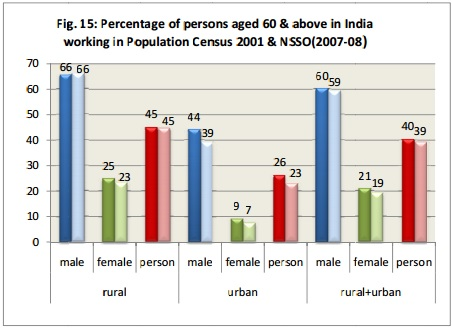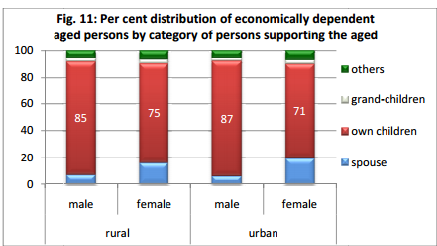A report on ‘Situation of elderly in India, 2011’ based on Census 2001 and the National Sample Survey Organisation (NSSO) survey on employment-unemployment (2007-2008) shows that more than 40% of people aged 60 years and above are still working. The report shows that a majority of Indians are not able to retire even after the age of 60 years. Of the 40% people aged 60 years and above, 60% are men whereas 19% constitutes women population.
More elderly people were involved in economic activity in rural areas as compared to urban areas. “66% of elderly men and more than 23% of aged women were still participating in economic activity in rural areas while only 39% of elderly men and about 7% of elderly women were economically active in urban areas,” states the report.
In the population census both main workers and marginal workers were considered. Main workers are those who have worked more than six months in a year whereas marginal workers worked for six months.

Majority of elderly men were economically independent. Among those who were not working, about 65% of the elderly population had to depend on others, mostly their own children. Among the economically dependent elderly men, 6-7% were financially supported by their spouses, almost 85% by their own children, 2% by grandchildren and 6% by others. Of the elderly women, less than 20% depended on their spouses, more than 70% on their children, 3% on grandchildren and 6% or more on others including other than relatives.
Another interesting finding is that of the economically independent men more than 90% have one or more dependants, the survey shows.





